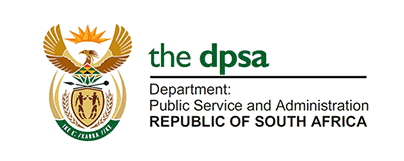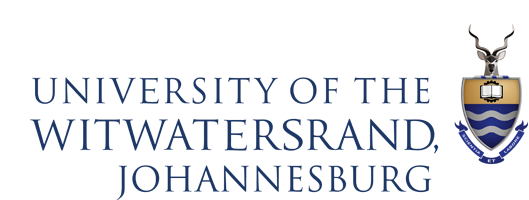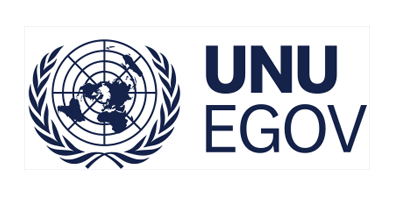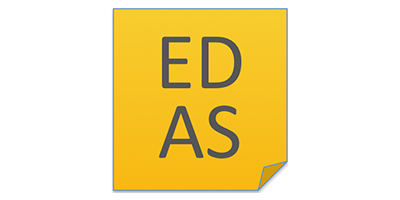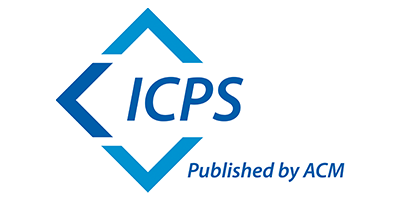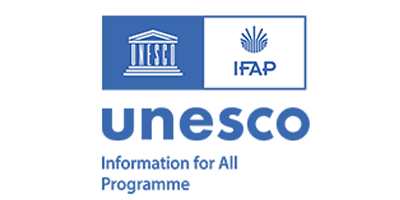Summary
About
The 16th edition of the International Conference on Theory and Practice of Electronic Governance – ICEGOV 2023 – returned to South America after the editions of 2009 (Colombia) and 2016 (Uruguay). This time, Brazil was the host country, with the city of Belo Horizonte setting itself up to be the hotspot of Digital Governance between 26-29 September 2023.
This year’s theme focused on Digital Governance for Democratic, Equitable, and Inclusive Societies. Citizen-centric values such as inclusion, participation, engagement, and transparency in government should be at the forefront when it comes to digital governance initiatives. In a networked, globalised, and increasingly data-driven world, in which democracies are put to the test, digital governance continues to play an important role. Citizen-centricity has proven difficult to achieve in practice, and there are challenges and limitations to reaching more democratic, equitable, and inclusive societies through digital governance.
Call for Papers
In response to the Call for Papers (available for download here), the conference received a total of 139 submissions written by 237 authors from 33 different countries. Subsequently, there was a double-blind peer-review process carried out by the Programme Committee (155 people). This review process resulted in 250 reviews and 78 accepted papers, which are published in the conference proceedings.
Best Paper Awards
The winning papers in each category are shown below. The choices were carried by the Awards Committee.
Best Research Paper:
- Digitalization and automation for the sake of IT? Insight from automation initiatives in Swedish municipalities, by Daniel Toll, Maria Booth, Ida Lindgren
- Aligning UN Goals and Legal Norms in a Case Weighting System: A Case Study on Environmental Crimes in Italy, by Vittoria Pistone, Francesco Sovrano, Biagio Distefano
Best Ongoing Research Paper:
- Digital public services based on Bourdieu’s theory of practice: a proposal for a conceptual framework, by João Paulo da Silva, Diana Rodrigues
Best Short Paper:
- Citizen-centric and trustworthy AI in the public sector: Cases of Finland and Hungary, by Claudia Oliveira, Sara Talpo, Noemie Custers, Emilia Miscena, Edwige Malleville
Statistics
Attendance: 269 people
- Academia: 98 (36%)
- Government: 32 (12%)
- Industry: 29 (11%)
- Civil Society: 16 (6%)
- International Organisations: 94 (35%)
Gender balance: 159 male, 107 female (59% / 40%)
Countries: 28
Country distribution: 17 developed countries, 11 developing countries (61% / 39%)
Papers submitted: 139
Authors: 237 authors from 33 countries
Papers published: 78
Acceptance rate: 41,7%*
Scholarships awarded: 32
Programme Committee: 155 members from 39 countries
*the acceptance rate includes only full papers.
Proceedings
# ICEGOV ’23: Proceedings of the 16th International Conference on Theory and Practice of Electronic Governance: Demi Getschko, Ida Lindgren, Mete Yildiz.
Publications
Institutions
Patron
- Prefeitura de Belo Horizonte
Organisers
- Smart City Business America
- United Nations University Operating Unit on Policy-Driven Electronic Governance (UNU-EGOV)
Sponsors
- Digital Governance Authority of Saudi Arabia
- Prodemge
- Nic.br
- Prodam
- Serpro
- Governo Federal do Brasil
- BH Airport
- Bhip
Supporters
- Association for Computing Machinery
- ABEP-TIC
- EDAS
- SESC
- ICPS
- Universidade Federal de Minas Gerais
- Departamento de Ciências da Comunicação (UFMG)
Comittees
Awards Committee
Tomasz Janowski, Gdańsk University of Technology • Chair
Soon Ae Chun, City University of New York
Adegboyega Ojo, Carleton University
Programme Committee
Raul ABRIL, European Commission, Belgium
Ayman ALARABIAT, Al-Balqa Applied University, Jordan
Adil AL-BUSAIDI, Sultan Qaboos University, Oman
Laura ALCAIDE MUÑOZ, University of Granada, Spain
Olukemi ALUKO, Obafemi Awolowo University, Nigeria
Luis ÁLVAREZ-SABUCEDO, University of Vigo, Spain
Luís AMARAL, University of Minho, Portugal
Xiaomi AN, Renmin University of China, China
Fabiano ANGÉLICO, Università della Svizzera italiana, Switzerland
Wagner ARAÚJO, United Nations University (UNU-EGOV), Portugal
Hernan ASTUDILLO, Universidad Técnica Federico Santa María, Chile
Johanna Ekua AWOTWI, Independent Researcher, Ghana
Cenay BABAOGLU, Nigde Omer Halisdemir University, Turkey
Sundar BALAKRISHNA, Government of Andhra Pradesh, India
Alexandre BARBOSA, Brazilian Network Information Center, Brazil
Luís Nuno BARBOSA, United Nations University (UNU-EGOV), Portugal
Soumaya BEN DHAOU, United Nations University (UNU-EGOV), Portugal
Radomir BOLGOV, Saint Petersburg State University, Russia
Aymen BOUDEBOUZ, United Nations University (UNU-EGOV), Portugal
Milber BOURGUIGNON, Federal University of Rio de Janeiro, Brazil
Linda BOWER, Independent Researcher, United States of America
Mikhail BUNDIN, Lobachevsky State University of Nizhny Novgorod, Russia
Inês CAMPOS RUAS, United Nations University (UNU-EGOV), Portugal
Joana CARVALHO, United Nations University (UNU-EGOV), Portugal
João Álvaro CARVALHO, University of Minho, Portugal
Alejandra CECHICH, Universidad Nacional del Comahue, Argentina
Wojciech CELLARY, WSB Merito University in Poznań, Poland
Tao CHEN, Huazhong University of Science and Technology, China
Carlos CHESÑEVAR, Universidad Nacional del Sur, Argentina
Sunil CHOENNI, Ministry of Justice and Security, Netherlands
Soon CHUN, City University of New York, United States of America
Flavio CORREA DA SILVA, University of São Paulo, Brazil
Maria Alexandra CUNHA, Getulio Vargas Foundation, Brazil
Sandra CUNHA, Polytechnic Institute of Cávado and Ave, Portugal
Rahul DE, Indian Institute of Management Bangalore, India
Vasiliki DIAMANTOPOULOU, University of the Aegean, Greece
Danilo ĐIKANOVIĆ, United Nations University (UNU-EGOV), Portugal
Eduardo DINIZ, Getulio Vargas Foundation, Brazil
Bettina DISTEL, University of Münster, Germany
Charmaine DISTOR, United Nations University (UNU-EGOV), Portugal
Bárbara DO NASCIMENTO, Rio de Janeiro State Prosecutor’s Office, Brazil
Gayatri DOCTOR, CEPT University, India
Pietro DOLCI, University of Santa Cruz do Sul, Brazil
Néstor DUCH BROWN, European Commission – Joint Research Center, Spain
Débora DUTRA, State University of Rio Grande do Sul, Brazil
Elsa ESTEVEZ, Universidad Nacional del Sur, Argentina
Olga FILATOVA, Saint Petersburg State University, Russia
Pablo FILLOTTRANI, Universidad Nacional del Sur, Argentina
Javier G. MARIN, University of Granada, Spain
Maria GINTOVA, McMaster University, Canada
Hélder GOMES, University of Aveiro, Portugal
Yiwei GONG, Wuhan University, China
Maria Paula GONZALEZ, Universidad Nacional del Sur, Argentina
Stevan GOSTOJIC, University of Novi Sad, Serbia
Dimitris GOUSCOS, National and Kapodistrian University of Athens, Greece
Manmohan GUPTA, Indian Institute of Technology Delhi, India
Rajan GUPTA, Analyttica Datalab, India
Moreen HEINE, University of Lübeck, Germany
Marcia HINO, Positivo University, Brazil
Bryan HO, University of Macau, China
Jun IIO, Chuo University, Japan
Tomasz JANOWSKI, University for Continuing Education Krems, Austria
Marijn JANSSEN, Delft University of Technology, Netherlands
Zoran JORDANOSKI, United Nations University (UNU-EGOV), Portugal
Izabela KAPSA, Kazimierz Wielki University, Poland
Arpan KAR, Indian Institute of Technology Delhi, India
Paul KARIUKI, University of KwaZulu-Natal, South Africa
Naci KARKIN, Pamukkale University, Turkey
Fernando KLEIMAN, Delft University of Technology, Netherlands
Ralf KLISCHEWSKI, German International University, Germany
Panagiotis KOKKINAKOS, National Technical University of Athens, Greece
Hiroko KUDO, Chuo University, Japan
Mariana LAMEIRAS, United Nations University (UNU-EGOV), Portugal
Thomas LAMPOLTSHAMMER, University for Continuing Education Krems, Austria
Beatriz LANZA, Inter-American Development Bank, United States of America
Mirian LIMA, Federal University of Ouro Prreto, Brazil
Galbaatar LKHAGVASUREN, National University of Mongolia, Mongolia
Luis LUNA-REYES, University at Albany (SUNY), United States of America
Lorenzo MADRID, Smart City Business America Institute, United States of America
Larissa MAGALHÃES, United Nations University (UNU-EGOV), Portugal
Aimilia MAGKANARAKI, Ministry of Health, Greece
Johan MAGNUSSON, University of Gothenburg, Sweden
Ana MAGUITMAN, Universidad Nacional del Sur, Argentina
Debendra Kumar MAHALIK, Sambalpur University, India
Stanislav MAHULA, KU Leuven, Belgium
Manuella MAIA RIBEIRO, Brazilian Network Information Center, Brazil
Mercy MAKPOR, United Nations University (UNU-EGOV), Portugal
Fábio MARQUES, University of Aveiro, Portugal
João MARTINS, United Nations University (UNU-EGOV), Portugal
Aleksei MARTYNOV, Lobachevsky State University of Nizhny Novgorod, Russia
Rony MEDAGLIA, Copenhagen Business School, Denmark
Sehl MELLOULI, Laval University, Canada
Harekrishna MISRA, Institute of Rural Management Anand, India
Gianluca MISURACA, Universidad Politécnica de Madrid, Spain
Isabele MITOZO, Federal University of Minas Gerais, Brazil
Lilian MITROU, University of the Aegean, Greece
Francesco MUREDDU, Lisbon Council, Belgium
Mijail NARANJO ZOLOTOV, NOVA Information Management School, Portugal
Niels NETTEN, Ministry of Justice and Security, Netherlands
Adegboyega OJO, Carleton University, Canada
Verónica ORELLANA-NAVARRETE, Escuela Politécnica Nacional, Ecuador
Alexander PAKHALOV, Lomonosov Moscow State University, Russia
Charalampos PAPADOPOULOS, Municipality of Kavala, Greece
Theresa PARDO, University at Albany (SUNY), United States of America
Anna PICCO-SCHWENDENER, Università della Svizzera Italiana, Switzerland
Fernando PINTO, Federal University of Rio de Janeiro, Brazil
Vicente PITOGO, Caraga State University, Philippines
Luciana PORTILHO, Brazilian Network Information Center, Brazil
Dmitry PROKUDIN, Saint Petersburg State University, Russia
Erico PRZEYBILOVICZ, United Nations University (UNU-EGOV), Portugal
Rui QUARESMA, University of Évora, Portugal
Benjamin ROSETH, Inter-American Development Bank, United States of America
Joanna RUDAWSKA, Jan Kochanowski University of Kielce, Poland
Mortaza S. BARGH, Research and Documentation Centre, Ministry of Justice and Security, Netherlands
Rafael SAMPAIO, Federal University of Paraná, Brazil
Janney Marcela SÁNCHEZ-TORRES, Universidad Nacional de Colombia, Colombia
Rodrigo SANDOVAL-ALMAZAN, Universidad Autónoma del Estado de México, Mexico
Vitor SANTOS, NOVA University of Lisbon, Portugal
Demetrios SARANTIS, United Nations University (UNU-EGOV), Portugal
Ayşegül SAYLAM, Hacettepe University, Turkey
Sven SCHADE, European Commission – Joint Research Center, Italy
Bianca Nardelli SCHENATZ, Federal University of Ouro Preto, Brazil
Hendrik SCHOLTA, University of Münster, Germany
Ecem SEVINÇ ÇUBUK, Adnan Menderes University, Turkey
João Marco SILVA, University of Minho, Portugal
Kerley SILVA, INESC TEC, Portugal
Rodrigo SILVA, Mackenzie Presbyterian University, Brazil
Érica SIQUEIRA, Getulio Vargas Foundation, Brazil
Delfina SOARES, United Nations University (UNU-EGOV), Portugal
Luís SOARES BARBOSA, United Nations University (UNU-EGOV), Portugal
Ralf-Martin SOE, Tallinn University of Technology, Estonia
Kaoru SUNADA, International University of Japan, Japan
Leif SUNDBERG, Umeå University, Sweden
Deniz SUSAR, United Nations Department of Economic and Social Affairs, United States of America
António TAVARES, University of Minho, Portugal
Lucille TETLEY-BROWN, United Nations University (UNU-EGOV), Portugal
Mamello THINYANE, University of South Australia, Australia
Lőrinc THURNAY, University for Continuing Education Krems, Austria
Dmitrii TRUTNEV, ITMO University, Russia
Manuel TUPIA, Pontificia Universidad Católica del Perú, Peru
Luiz VARGAS, Federal University of Rio de Janeiro, Brazil
Costas VASSILAKIS, University of the Peloponnese, Greece
Jayan VASUDEVAN, Centre for Development of Advanced Computing, India
Gabriela VIALE PEREIRA, University for Continuing Education Krems, Austria
Lyudmila VIDIASOVA, ITMO University, Russia
Shefali VIRKAR, Vienna University of Economics and Business, Austria
Gianluigi VISCUSI, Linköping University, Sweden
Nosheen WARRAICH, University of the Punjab, Pakistan
Ronny WEINKAUF, University of Applied Sciences Merseburg, Germany
Guilherme WIEDENHÖFT, Federal University of Rio Grande, Brazil
Sheng WU, United Nations University (UNU-EGOV), Portugal
Tung-Mou YANG, National Taiwan University, Chinese Taipei
Mika YASUOKA, Roskilde University, Denmark
Mete YILDIZ, Hacettepe University, Turkey
Moinul ZABER, United Nations University (UNU-EGOV), Portugal

